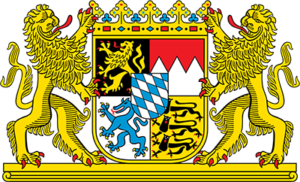4SC’s resminostat receives Orphan Drug Designation from the European Medicines Agency
The company had recently published positive data from a pivotal study with resminostat in patients with advanced cutaneous T-cell lymphoma (CTCL).
October, 2023

© 4SC AG
Focus: cancer treatment.
„Receiving orphan drug designation provides us with a number of important benefits for resminostat (Kinselby), most crucially 10 years’ market exclusivity in the European Union, and, alongside our Orphan Drug Designation in the US, provides us with a solid foundation for our efforts to commercialise Kinselby in these major markets.”
Jason Loveridge, Ph.D., CEO of 4SC
4SC AG (4SC, FSE Prime Standard: VSC), an IZB-based biotech company improving the lives of patients suffering with advanced-stage CTCL, received notification from the European Medicines Agency (EMA) that it has granted Orphan Drug Designation (ODD) to resminostat for the treatment of cutaneous T-cell lymphoma (CTCL).
ODD provides privileged status to drugs that show promise for the treatment of rare diseases in the European Union. ODD qualifies 4SC for benefits including protocol assistance, market exclusivity and fee reductions.
This announcement follows the announcement on 27 September 2023 that the US FDA had granted resminostat (Kinselby) orphan drug designation, which gives a number of benefits, most importantly seven years’ market exclusivity in the US.
CTCL is a rare disease with approximately 5,000 patients being newly diagnosed in Europe each year. The disease arises from malignant transformation of T-cells, a specialized subgroup of immune cells, and primarily affects the skin, but may ultimately involve lymph nodes, blood and visceral organs.
4SC recently announced data from its RESMAIN study, one of the largest randomized, controlled clinical trials in advanced CTCL, demonstrating for the first time the benefit of maintenance therapy in patients with advanced CTCL. In this study, resminostat (Kinselby) showed a statistically significant improvement in progression free survival of 97.6% compared to placebo, with a risk reduction of 38% in recently announced headline trial results (median Progression Free Survival (”PFS”): 8.3 months versus 4.2 months; p=0.015; HR: 0.623 (95%CI: 0.424, 0.916).
Furthermore, resminostat (Kinselby)’s median time to next treatment versus placebo showed a significant improvement of 8.8 months compared to 4.2 months; p= 0.002; HR: 0.594 (95% CI: 0.424, 0.916). The side effects of resminostat were mainly mild to moderate, manageable and reversible.
Additional analyses established that those treated showed a clinically meaningful improvement in median “total” PFS (defined from start of last prior therapy to disease progression) of 24.3 months, compared to 14.9 months for those in the placebo group.
Jason Loveridge, Ph.D., CEO of 4SC, commented: “CTCL is currently an incurable disease and patients are in great need of better therapies. Our recent RESMAIN trial has demonstrated strong efficacy data for resminostat (Kinselby). Receiving orphan drug designation provides us with a number of important benefits for resminostat (Kinselby), most crucially 10 years’ market exclusivity in the European Union, and, alongside our Orphan Drug Designation in the US, provides us with a solid foundation for our efforts to commercialise Kinselby in these major markets.”
About Kinselby (resminostat)
Resminostat is an orally administered class I, IIb and IV histone deacetylase (HDAC) inhibitor that potentially offers an approach to treating different kinds of cancer. Resminostat demonstrated that it is well tolerated and can inhibit tumor growth and proliferation, cause tumor regression, and strengthen the body’s immune response to cancer. Resminostat is currently being investigated in a pivotal study in cutaneous T-cell lymphoma (CTCL) as maintenance treatment by 4SC in Europe and by Yakult Honsha in Japan.
About cutaneous T-cell lymphoma (CTCL)
CTCL is a rare disease with approximately 5,000 patients being newly diagnosed in Europe each year. The disease arises from malignant transformation of T-cells, a specialized subgroup of immune cells, and primarily affects the skin, but may ultimately involve lymph nodes, blood and visceral organs.
Currently, CTCL is incurable and treatment options for advanced-stage CTCL are limited. Although patients respond to the available treatment options, the duration of response is often short-lived and declines as the severity of the disease increases. The key therapeutic challenge in advanced-stage CTCL is therefore to make remissions more durable by halting disease progression and improving patient’s quality of life.
About the RESMAIN study – resminostat for maintenance treatment of CTCL
The pivotal RESMAIN study was conducted at more than 50 clinical centers in 11 European countries and Japan. It included 201 patients who suffer from advanced-stage cutaneous T-cell lymphoma (CTCL) that have achieved disease control with systemic therapy. The patients were randomized 1:1 to receive either resminostat or placebo. Patients who experienced disease progression – while being on placebo – were offered resminostat in an open label treatment arm.
The primary goal of the study was to determine whether maintenance treatment with resminostat prolongs progression-free survival and other secondary objectives. Data demonstrating that resminostat met the primary endpoint of the RESMAIN study was published in May 2023.
4SC AG is a clinical-stage biopharmaceutical company developing small-molecule drugs that target key indications in cancer with high unmet medical needs.
4SC’s pipeline is protected by a comprehensive portfolio of patents and currently comprises one drug candidate in clinical development: Kinselby – resminostat.
4SC aims to generate future growth and enhance its enterprise value by entering into partnerships with pharmaceutical and biotech companies and/or the eventual marketing and sales of approved drugs in select territories by 4SC itself.
4SC is headquartered in Planegg-Martinsried near Munich, Germany. The Company had 16 employees as of 30 September 2023 and is listed on the Prime Standard of the Frankfurt Stock Exchange (FSE Prime Standard: VSC; ISIN: DE000A3E5C40).



